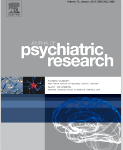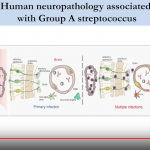Our first 2016 edition of Spotlight: OCD Research News & Updates is out now! The January update includes the latest in research news and information on obsessive compulsive disorder (OCD) with a special research highlight on hoarding disorder (HD).
This series is also available via email so you can receive the latest research news and information directly in your inbox. Sign up to receive our February edition of Spotlight, as well as all future issues, by going here and selecting the “Spotlight” option on our email signup form.
Making Headlines
OCD advocates and stories making news around the globe this winter
OCD and Acting Out: Afraid You Will Really Do It?
Anxiety.org, December 2015
Loosely defined, the fear of acting out obsessive thoughts in OCD means the fear of making unwanted behavioral decisions either against one’s own will or in a state of uncontrolled madness. To understand the fear of acting out, the author asks readers to consider two concepts: Russian roulette and the kinesthetic sense. These have likely never been listed in the same sentence before, but they both capture something meaningful about the internal experience of this common OCD fear.
Why Dogs Are Some Scientists’ New Best Friends ($)
Wall Street Journal, December 2015
The DNA of dogs may offer clues about human conditions, such as OCD and autism, according to researchers at the University of Massachusetts Medical School, who have launched a major study of canine genetics, behavior, and personality.
SCB Showcase
Members of the IOCDF Scientific & Clinical Advisory Board (SCB) are among the best clinicians and investigators in the United States who treat and/or conduct research in the field of OCD and related disorders. Here, we recognize SCB members whose work has recently turned heads in the scientific community or general public.
Side-effects of SSRIs disrupt multimodal treatment for pediatric OCD in a randomized-controlled trial ($)
Journal of Psychiatric Research, December 2015
Research by SCB members Tanya Murphy and Eric Storch is included as part of this study examining Activation Syndrome (AS), a side-effect of selective seratonic reuptake inhibitors (SSRIs) commonly used in treating OCD. This study analyzed how AS — which consists of consisting of irritability, mania, self-harm, akathisia, and disinhibition — may hinder treatment outcomes for multimodal treatment for children and adolescents with OCD.
OCD Research Corner
A monthly roundup of the latest in OCD research from scientific journals and other publications
Sweeping Study Underscores Autism’s Overlap with Obsessions
Spectrum News, December 2015
The largest study of people with autism and OCD to date adds to mounting evidence that the two conditions may share genetic roots. Compared with their typical peers, people with autism are twice as likely to receive a diagnosis of OCD and people with OCD are four times as likely to also have autism, according to this Danish study of more than 850,000 people. The findings were published in PLOS ONE.
Linking intranasal group A Streptococcus infection to CNS complications
Journal of Clinical Investigation YouTube Channel, December 2015
How can an infection of the throat and not the brain still end up causing a change in the brain’s chemistry? This is the question driving research discussed in this video. Infection with group A Streptococcus (GAS) causes the common and treatable pharyngitis known as strep throat; however, these infections are also associated with autoimmune diseases of the central nervous system (CNS). A subset of children are at risk of developing pediatric autoimmune neuropsychiatric disorders associated with streptococcal infections (PANDAS), which are characterized by an abrupt onset of abnormal behaviors. Researchers Pat Cleary and Dritan Agalliu discuss their collaboration to investigate the link between the generation of GAS-specific Th17 cells and CNS autoimmunity. Their data provide insights into the immunopathology underlying GAS-associated neurological complications. Findings from their research are also summarized in an article here.
IOCDF Research Resources
Find other research-related resources from the IOCDF, including:
- Join a research study as a participant
- Learn about the IOCDF Research Grant Program
- Donate to the IOCDF Research Grant Fund
For researchers:


Please advise if o.c.d.can be cured and how
Hi Rajinder — While there is currently no “cure” for OCD, there are definitely ways to treat it. The most effective treatments for OCD are a type of therapy called exposure and response prevention and medication. We have more information about both of these treatment options on our website here. The IOCDF also maintains a Resource Directory that you can use to find treatment providers familiar with the most effective ways to treat OCD in your area. A link to the Resource Directory, as well as a guide on how to use it can be found here.